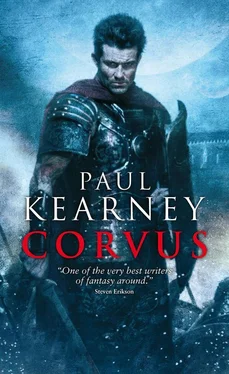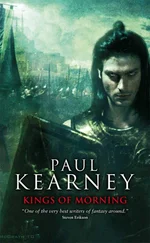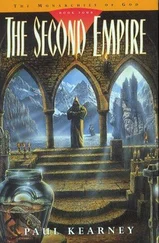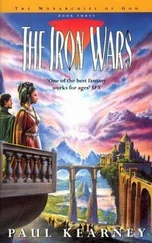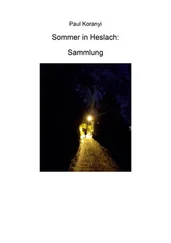Paul Kearney - Corvus
Здесь есть возможность читать онлайн «Paul Kearney - Corvus» весь текст электронной книги совершенно бесплатно (целиком полную версию без сокращений). В некоторых случаях можно слушать аудио, скачать через торрент в формате fb2 и присутствует краткое содержание. Жанр: Фэнтези, на английском языке. Описание произведения, (предисловие) а так же отзывы посетителей доступны на портале библиотеки ЛибКат.
- Название:Corvus
- Автор:
- Жанр:
- Год:неизвестен
- ISBN:нет данных
- Рейтинг книги:5 / 5. Голосов: 1
-
Избранное:Добавить в избранное
- Отзывы:
-
Ваша оценка:
- 100
- 1
- 2
- 3
- 4
- 5
Corvus: краткое содержание, описание и аннотация
Предлагаем к чтению аннотацию, описание, краткое содержание или предисловие (зависит от того, что написал сам автор книги «Corvus»). Если вы не нашли необходимую информацию о книге — напишите в комментариях, мы постараемся отыскать её.
Corvus — читать онлайн бесплатно полную книгу (весь текст) целиком
Ниже представлен текст книги, разбитый по страницам. Система сохранения места последней прочитанной страницы, позволяет с удобством читать онлайн бесплатно книгу «Corvus», без необходимости каждый раз заново искать на чём Вы остановились. Поставьте закладку, и сможете в любой момент перейти на страницу, на которой закончили чтение.
Интервал:
Закладка:
“I have a wife.”
“I’m past bearing children now, or as close as makes no matter. And you are no longer young either. If you want an heir you must father one on some decent woman – it would not do to have a slave as his mother.”
“You were a slave once,” Rictus reminded her sharply. “Do you think that matters to me, after all this time?”
She smiled, and in her face there was both bitterness and a peculiar kind of happiness, as if a memory had lit up her eyes.
“You freed me. You would have no other but me. I do not forget, Rictus. I will never forget that.”
“Then let’s go to bed,” he said, tugging on her hand like a child intent on its mother’s attention. It was like pulling on the root of an oak.
“No; I will bide here awhile with the dogs. Go you to bed – there’s a dish of water to wash in.”
“There was a time when you would have washed me yourself, Aise, and I would return the favour.”
“We are not youngsters, Rictus, coupling like dogs every chance we get.”
“We’re not dead yet, either,” he snapped, and he rose, the anger flooding his face. He seized his wife by the arms and drew her to her feet. Her eyes met his, blank as slate. With something like a snarl he hoisted her into his arms and strode across the room, the dogs whimpering at the mood in the air. He kicked open the door that led to their bedroom – there was a single lamp left burning in it, and his muscles locked as he prepared to toss her onto the bed.
But he stopped, arms tight about her spare frame, she tense within the embrace as a man’s face stiffens before a blow.
A neat, ordered space. She had laid out a fresh chiton for him, and the battered sandals he always wore about the farm. There were the year’s last flowers, fresh-cut in a jar – the deep aquamarine jar he had brought all the way from Sinon, a lifetime ago – she had always treasured it, for the memory. Clean linen, a jug and ewer, all set out as she had set them out for him these twenty years and more, sometimes under a roof, sometimes under the ragged canvas of an army tent, and sometimes under nothing but the canopy of the stars. His anger drained away.
He laid her gently down on the willow-framed bed, his face harsh and set. Then he kissed his wife on the forehead, her own features unreadable in the shadow he cast before the lamp. He stood over her a moment, a dark giant, an interloper filling the room with his bulk and the smell of the road, the stink of the army. Then he turned and left, closing the door behind him.
That first night back in his home, Rictus slept on the floor before the dying fire, wrapped in his scarlet cloak with the dogs curled up around him for company.
TWO
AS Rictus had predicted, the snow came that night, drifting down soundlessly in the black hours. He rose well before dawn to poke the ashes of the fire into red warmth again and toss kindling upon the pulsing glow of the embers. The dogs rose beside him, stretching and yawning. Old Mij licked his face and would not leave him alone until he had had his ears well scratched, while Pira, the young bitch, rolled on the floor, arching her back like a cat.
He opened the door, shivering in his well-worn cloak, and in the pre-dawn dark the snow stretched grey and unbroken across the valley before him. Above the lip of the mountains red Haukos still sailed, but his brother Phobos had almost set.
Rictus crunched barefoot across the virgin snow, the dogs trotting after. In the blank whiteness only the river seemed dark, prattling noisily to itself.
Rictus’s eye was caught by tracks in the snow – a hare, and heading down to the brim of the river was the spoor of an adventurous vole not yet ready for its winter sleep. The dogs snuffled along the riverbank, lapping at the water.
Rictus knelt beside them in the chill mud and dipped his hands in the flow, dashing the water about his head and neck. The bite of it made him gasp, but brought him fully awake.
When he returned, the household was coming to life. The fire was a yellow roar now, and Aise was tending a pot suspended above it; barley porridge, by the smell. The new slave, Styra, was bringing in more wood and Fornyx was sat at the kitchen table, last night’s drinking dragging down his face.
“You’re too damn sprightly looking,” he told Rictus. “You don’t drink enough – never did. Lady” – this to Aise – “Would there be any more of that fine yellow wine to chase down the humours?”
“Porridge will serve you better,” Aise said, and clicked a bowl down in front of him.
“Where are the girls?” Rictus asked her. She did not look up from the pot as she replied.
“Out milking the yard-goats. They’ll be in presently. Eat, husband, while there’s heat in it.”
He ate standing, out of long habit, scooping up the glutinous stuff with his fingers, until he caught Fornyx’s meaningful look, and took a horn spoon off the table instead.
The girls came in with pails of warm goat’s-milk, chattering like starlings, though Ona went wide-eyed and silent when she saw her father standing in his red warrior’s cloak. Eunion was close behind them, wrapped in the greasy sheepskin he’d worn in cold weather since Rictus had first known him. All at once the kitchen was alive and crowded and noisy, the table framed by faces, the tick and clatter of earthenware. Fornyx joined in the morning banter with Rian as though he had never been away, and the dogs sat silently behind the two girls until their patience bore fruit in the form of bread crusts soaked in milk.
Rictus remained standing by the door, his spoon circling his empty bowl mechanically. He watched them without a word, like some guardian apparition, and felt an inexplicable ache near his heart. This was his family. He had brought it together, had made it himself. The girls were of his own blood, and the others were so bound to him by memories and the sharing of the years that they were as good as kin.
Why, then, did he sometimes feel that he was on the outside of it, looking in?
Eunion had been a tutor of literature before Rictus and his men had defeated his city’s army in battle. A tithe of the defeated citizen-soldiers had been sold into slavery as part of the negotiations which had concluded the war – some petty little affair away to the west of Machran – Rictus could no longer even remember the name of the city that had hired him to battle Eunion’s people.
The defeated had drawn lots, to see who would be sold, and Eunion had simply been unlucky. He had a beautiful singer’s voice, and he knew every ballad and lay of the western lowlands; for this, and his learning, Rictus had purchased him, to preserve him from the slave-agents who picked like crows in the aftermath of every battlefield. A simple decision, made on the whim of the moment. It had kept Eunion from the mines, and had gained for Rictus the friendship of an exceptional man, as upright and decent as it was possible to be in this fractured world.
Fornyx had taken scarlet with a brute mercenary centon while still little more than a boy. He had been badly used by them, made into a camp servant. Rictus’s own centons had destroyed them in a hard, bitter fight near the Kuprian coast. It had been autumn, the campaigning season almost over, and the two little armies had fought in a rainstorm, churning the ground beneath their feet into a mire in which the wounded were trampled and suffocated.
When the battle was over, Rictus had discovered the boy Fornyx busily smashing out the brains of his own centurion with a stone. He had recognised the look in the boy’s eyes – had seen it in the eyes of a host of others like him up and down the war-torn cities of the Harukush. Once, his own face had looked the same. So he recruited the undersized Fornyx into the ranks of his own centons, and in time the boy had become a man, and had proved more faithful than any hound, though possessed of an acerbic wit that could ignite men in a roar of laughter or set them at each other’s throats in the time it took to drink a bowl of wine.
Читать дальшеИнтервал:
Закладка:
Похожие книги на «Corvus»
Представляем Вашему вниманию похожие книги на «Corvus» списком для выбора. Мы отобрали схожую по названию и смыслу литературу в надежде предоставить читателям больше вариантов отыскать новые, интересные, ещё непрочитанные произведения.
Обсуждение, отзывы о книге «Corvus» и просто собственные мнения читателей. Оставьте ваши комментарии, напишите, что Вы думаете о произведении, его смысле или главных героях. Укажите что конкретно понравилось, а что нет, и почему Вы так считаете.
